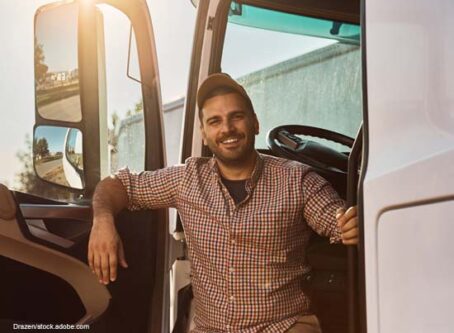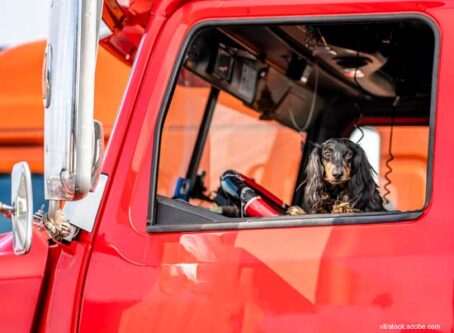Is trucking headed for a decline?
For-hire trucking is about to lose a lot of business, as much as 20 percent over the next 10 years. That’s the word from Craig Fuller, CEO of Chattanooga, Tenn.-based FreightWaves, a company that gathers and analyzes market data for the freight transportation industry.
FreightWaves, the company’s web publication, offers transportation news and opinion – often smart opinion. Unlike most stock analysts who watch trucking, Fuller knows the industry from the inside. He grew up in the trucking business. His father is Max Fuller, who co-founded US Xpress with the late Pat Quinn in 1985. Chattanooga-based US Xpress is now America’s seventh largest truckload carrier, according to Transport Topics.
I’m not a great fan of US Xpress, an influential part of the truckload establishment, but you can’t deny its success. Max is still chairman, Craig’s brother Eric is CEO, and then there’s Craig, the data-driven Fuller.
Writing in FreightWaves, Craig Fuller sees three trends that will “drastically shrink demand for for-hire trucking services” by as much as 20 percent. The first is web retail in general and Amazon in particular. E-commerce, Fuller wrote, now accounts for 2.7 percent of all trucking freight.
In 10 years that number will be 7 percent. If it continues to grow as it has, Amazon will soon enough control $30 billion worth of truckload volume – up from $6 billion today. That kind of volume will enable Amazon to establish its own network of dedicated transport that will largely shut out for-hire truckload carriers, according to Fuller.
There is an upside here for owner-operators, who would probably find work in those dedicated networks. That’s not the case in Fuller’s next two for-hire challenges.
Second on his list is the automotive industry. We’re headed for a world in which many people will have no need to own a car, Fuller predicted. Turns out the automotive sector accounts for 9 percent of all trucking, he said, but the number of cars in the U.S. could decline by as much as 80 percent as ride-sharing by the Ubers and Lyfts of the world begins to cost less than car ownership. The cars that are built or assembled here may be electric, they may be self-driving, or they may be neither. But there will surely be fewer of them, Fuller wrote. The trucking freight market will shrink accordingly.
Third on the list is agriculture. Fuller points to trends that will fundamentally change the food industry. For example, locally sourced foods are popular and becoming more so. Local produce requires less trucking than crops from, say, California’s Central Valley, which are distributed all over the country. Sure, local farms can only supply in season, but indoor farming may take up the slack.
Fuller pointed out that controlled-environment agriculture produces food plants virtually anywhere. Indoor farming isn’t exactly new, but now it is ready to go commercial. A company called Plenty, with $400 million in backing, plans to build huge indoor farms close to major cities. Even if this particular effort does not succeed, a healthy, well-fed future requires that future ones do.
Add to that the commercial viability of lab-grown meat and you have a lot less food zipping to market around the country on trucks. Fuller estimates that 18 percent of trucking revenue comes from hauling produce and livestock. If only half of the goes away, “9 percent of freight volume would be at risk,” Fuller wrote.
None of this can happen quickly. The changes will be evolutionary, maybe not even noticeable until well into Fuller’s 10-year time frame. Then again, his predictions may not come true at all.









